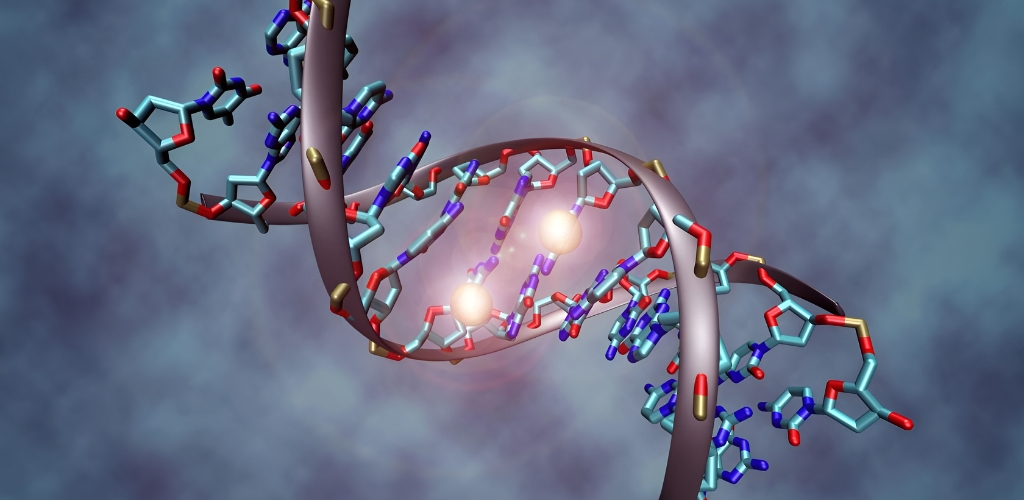Epigenetics, the study of modifications in gene expression not caused by changes in the DNA sequence, has emerged as a groundbreaking field with profound implications for personalised medicine. This blog delves into the transformative potential of epigenetics in shaping the landscape of personalised medicine, exploring the intricate interplay between genetic factors, environmental influences, and disease management.
Unveiling the Power of Epigenetics
Epigenetic modifications, including DNA methylation and histone modifications, play a pivotal role in regulating gene expression, chromatin organisation, and disease development. These alterations can influence a wide array of biological processes, from cellular differentiation to disease pathogenesis, offering valuable insights into the molecular mechanisms underlying health and illness.
Personalised Medicine: A Paradigm Shift in Healthcare
Personalised medicine, also known as precision medicine, represents a paradigm shift in healthcare that aims to tailor medical decisions and treatments to individual patients based on their unique genetic makeup, epigenetic profiles, and environmental exposures. By integrating genomic information, transcriptomics, proteomics, and metabolomics data, personalised medicine enables clinicians to deliver targeted therapies that are more effective, safer, and better suited to each patient’s specific needs.
Epigenetics in Disease Prevention and Treatment
Epigenetics plays a crucial role in disease prevention, treatment, and management by influencing gene expression patterns and cellular functions. For instance, epigenetic modifications such as DNA methylation and histone acetylation have been implicated in various diseases, including cancer, diabetes, cardiovascular disorders, and neurodegenerative conditions. Understanding these epigenetic mechanisms can pave the way for the development of novel therapeutic strategies and personalised interventions.
Epigenetic Biomarkers and Therapeutic Targets
Epigenetic biomarkers hold immense promise for predicting disease risk, monitoring treatment responses, and guiding personalised therapeutic interventions. By identifying specific epigenetic signatures associated with disease states, clinicians can make more informed decisions about patient care and treatment strategies. Moreover, epigenetic targets, such as DNA methyltransferase inhibitors and histone deacetylase inhibitors, offer new avenues for developing targeted therapies that modulate epigenetic processes to treat various conditions effectively.
What are some examples of epigenetic modifications that can influence gene expression patterns and cellular functions ?
Some examples of epigenetic modifications that can influence gene expression patterns and cellular functions include:
- DNA Methylation: DNA methylation is a crucial epigenetic modification that regulates gene expression, X-chromosome inactivation, imprinting, chromatin organisation, and other biological processes. It involves the addition of a methyl group to DNA, which can impact gene activity and cellular functions significantly.
- Histone Modifications: Histone modifications, such as acetylation, phosphorylation, and ubiquitylation of histone proteins, play a key role in regulating gene expression by modifying chromatin structure. These modifications can influence the accessibility of DNA to transcription factors, thereby impacting gene expression patterns and cellular functions.
- Chromatin Remodelling: Epigenetic alterations also include chromatin remodelling, which involves changes in the structure of chromatin to regulate gene expression. This process can affect how genes are accessed and transcribed, thereby influencing cellular functions and contributing to various diseases.
- Regulatory RNAs: Regulatory RNAs, such as microRNAs and long non-coding RNAs, are another example of epigenetic modifications that can influence gene expression patterns. These RNAs can interact with messenger RNAs to regulate gene expression and cellular functions in a variety of biological processes.
What is the role of histone modifications in gene expression ?
Histone modifications play a crucial role in regulating gene expression by modifying chromatin structure and influencing the accessibility of DNA to the transcriptional machinery. These modifications, such as acetylation, methylation, phosphorylation, and ubiquitination of histone proteins, can impact gene transcriptional activity and chromatin organisation.
Histone Acetylation: Histone acetylation, regulated by histone acetyltransferases (HATs) and histone deacetylases (HDACs), involves the addition or removal of acetyl groups from histone tail lysine residues. Acetylation typically leads to higher gene expression by loosening the interaction between histones and DNA, making the chromatin more accessible to transcriptional machinery. In contrast, deacetylation by HDACs represses gene expression.
Histone Methylation: Histone methylation can have either a permissive or repressive effect on gene expression, depending on the location and number of methyl groups added to histone tail lysine residues. This modification plays a critical role in regulating chromatin structure and transcriptional activity.
Overall, histone modifications, including acetylation and methylation, are key components of the complex and dynamic process of transcriptional regulation, influencing gene expression patterns and cellular functions by modulating chromatin accessibility and gene activity[4][5].
Challenges and Opportunities Ahead
While the field of epigenetics and personalised medicine holds great promise, it also presents several challenges that must be addressed to realise its full potential. These challenges include ethical considerations surrounding patient autonomy, privacy, and equal access to personalised treatments, as well as the need for robust regulatory frameworks to govern the use of epigenetic information in clinical practice. Despite these challenges, the rapid advancements in epigenetic research and personalised medicine offer unprecedented opportunities to revolutionise healthcare delivery and improve patient outcomes.
In conclusion, the integration of epigenetics and personalised medicine represents a transformative approach to healthcare that holds the promise of delivering more precise, effective, and patient-centred treatments. By harnessing the power of epigenetic information to tailor medical interventions to individual patients, we can usher in a new era of healthcare that is truly personalised, proactive, and predictive.
Citations:
[1] https://bmcmedgenomics.biomedcentral.com/articles/10.1186/1755-8794-8-S1-S5
[2] https://info.gbiosciences.com/blog/epigenetics-and-personalized-medicine
[3] https://clinicalepigeneticsjournal.biomedcentral.com/articles/10.1186/s13148-022-01263-1
[4] https://www.lls.org/blog/epigenetics-new-tool-precision-medicine
[5] https://www.activemotif.com/blog
[6] https://clinicalepigeneticsjournal.biomedcentral.com/articles/10.1186/s13148-022-01263-1
[7] https://www.cusabio.com/c-20826.html
[8] https://aacijournal.biomedcentral.com/articles/10.1186/s13223-018-0259-4




